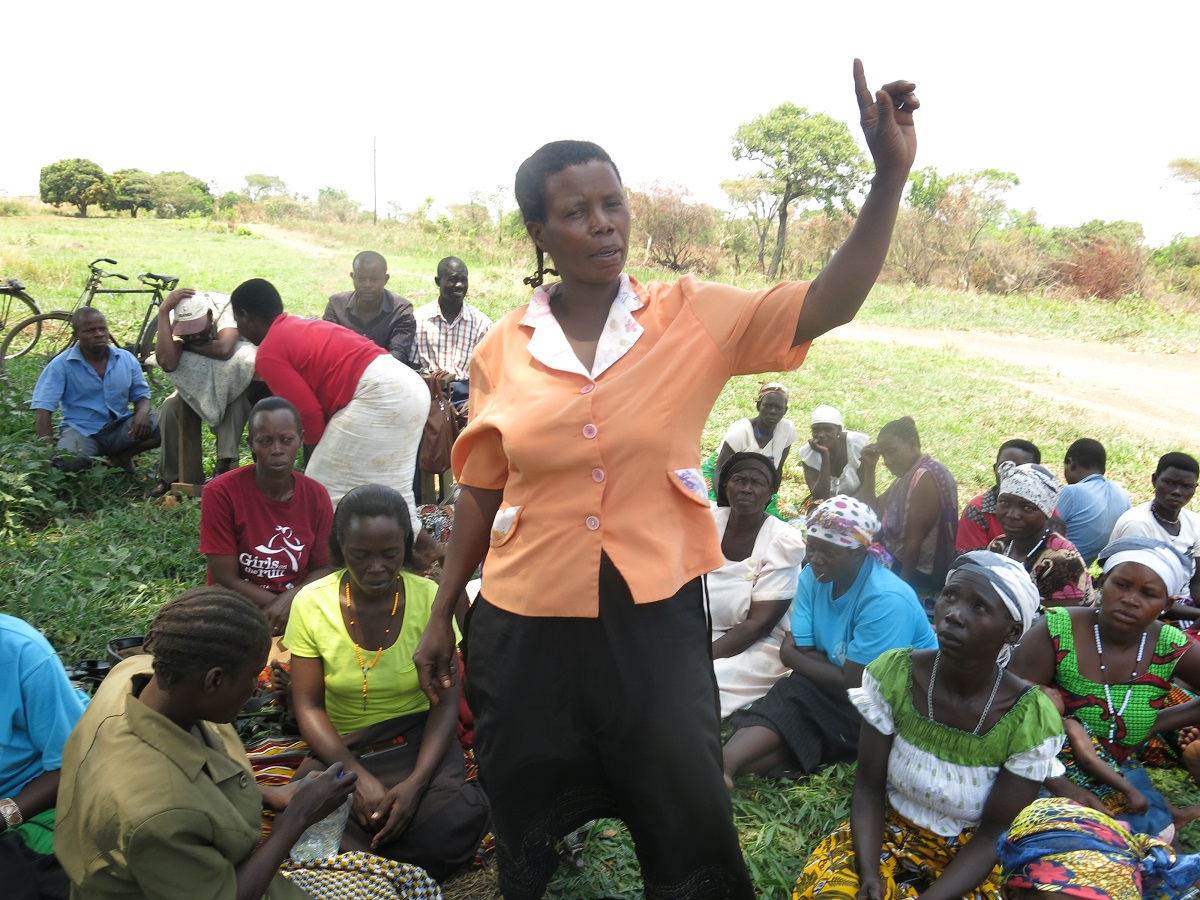Butchers slaughtering a cow that collapsed due to lack of water and pasture in Wabinyonyi sub county
The destruction of pasture caused by African armyworms and prolonged drought has escalated the death of cattle in Nakasongola district. The district has been facing drought since November 2021. In early April this year, the district received intermittent rains, which enabled some pasture to rejuvenate giving pastoralists some hope.
However, the pastoralists are now crying foul following the outbreak of the African Armyworms that have invaded several farms and destroyed the pasture hence affecting livestock. The most affected pastoralists including Nakitoma, Nabiswera, Kalungi, Lwampanga, Kalongo,Lwabyata and Wabinyonyi sub counties among others.
Fredson Kakooza Wilson, the LC 3 Chairperson of Nabiswera sub-county, says that he personally lost all pasture on his 50 acres of land whereas his neighbour lost pastures on 200 acres of land. Kakooza says that pastoralists can’t afford pesticides to spray the worms, which have spread across large farms in the sub-county. Kakooza says that due to loss of pasture and prolonged water scarcity, at least eight cows die daily in the sub-county.
“Due to rampant death of animals, the price of beef has also dropped to between Shillings 3000 -5000 per kilogram while the cow costs between Shillings 500,000 and 800,000,” Kakooza said. The situation is not any different in Nakitoma sub-county. Godfrey Lutalo, the LC 3 Chairperson of Nakitoma sub-county says that at least 10 cows die each day in the sub-county due to lack of pasture.
“Every day I see pastoralists selling meat from animals slaughtered after collapsing due to water and pasture scarcity. It’s terrible and the government needs to come to our rescue,” he said. According to sub-county leaders, at least 30 head of cattle is estimated to die every day in the district due to scarcity of water and pasture.
Sarah Nakate, the Lwabyata sub-county LC V councillor, says that by the time they experienced the armyworms outbreak, several villages in her area were still battling water scarcity. Nakate explains the pastoralists are now paying Shillings 20,000 per head of cattle to access drinking water at private water tanks for a period of a month.
“Pastoralists who are already paying heavily for water can’t again buy pesticides to spray against large farmlands. The government must come to their rescue and donate free pesticides to them,” Nakate said. Sam Tingira, the Nakasongola District Secretary for Production, says that they received limited amounts of pesticides from the Ministry of Agriculture, Animal Industry and Fisheries that will be used for demonstration purposes, especially in the most affected sub-counties.
Tingira says that the armyworms have not only ravaged pastures but have also destroyed large acres of maize plunging the area into food insecurity. He, however, says that they hope the spread of the armyworm will reduce when the rains start. According to the Ministry of Agriculture, Animal Industry and Fisheries the African armyworm has spread to 38 districts.
A statement released by the Agriculture Ministry on Tuesday indicates that the worm has almost reached every region in the country and affected over 1,407 farmers on 5,415 hectares of land. The Ministry has advised pastoralists to withdraw from grazing on affected pastures for 7-10 days and spray against the pests.
The Ministry of Agriculture has procured over 20,000 liters of Cypermethrin 5EC pesticide, 100 motorized pumps and 200 sets of protective gear for distribution to the affected districts to fight the pests.
-URN





